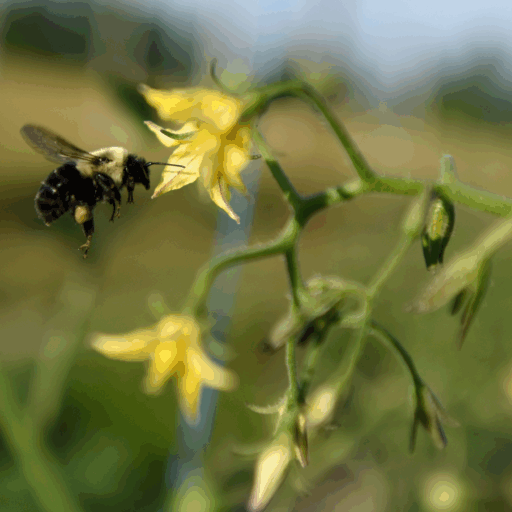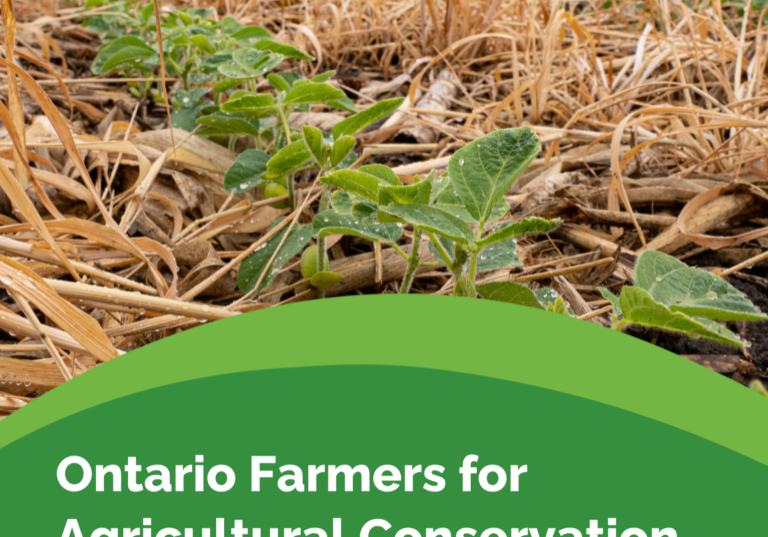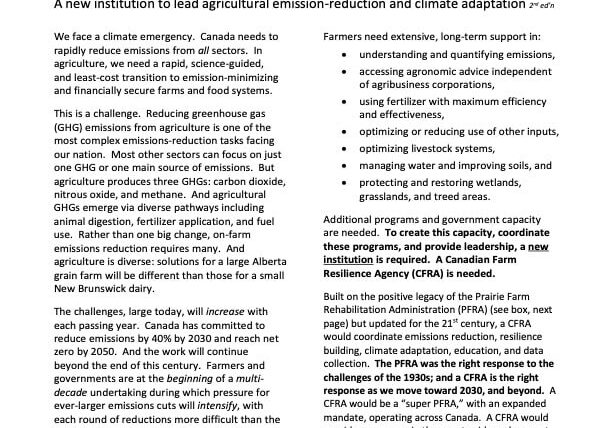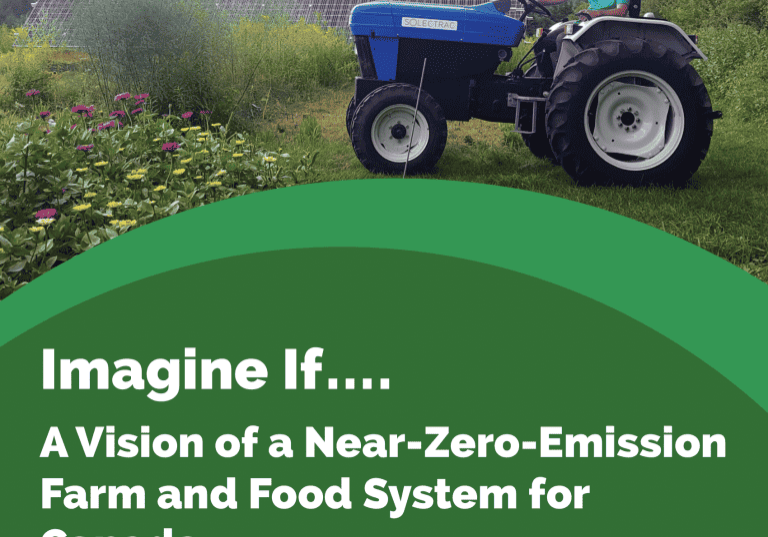There is an urgent need to change the way we farm.
Canadian agriculture accounts for approximately 12% of Canada’s total greenhouse gas emissions. But even though agriculture is uniquely vulnerable to the impacts of climate change, unlike other sectors, these emissions are going up. It is clear that something must change.
Farmers are also in a unique position to change some habits in small ways that can make a collectively significant impact. Simple acts such as using more cover crops, shifting away from synthetic fertilizers and pesticides, using no till practices, and maintaining or planting hedgerows, woodlots and naturalized marginal areas are significant ways to improve farmers’ ability to be leaders in climate action.

Weathering the storms: Agriculture in a changing climate.
At global and local levels, we face multiple food system challenges posed by climate change: extreme weather events, soil degradation, and biodiversity collapse, among others. And, as demonstrated by the COVID-19 pandemic, our globalized food system is not impervious to disruptions to our supply chains. All of these challenges pose a threat to our ability to secure fresh, healthy food to feed our communities.
Sowing the seeds of change.
The NFU-O works to advance the principles of agroecology: a holistic approach to food production that uses—and creates—social, cultural, economic and environmental knowledge to promote food sovereignty, social justice, economic sustainability, and healthy agricultural ecosystems. It is a way of farming, and a way of thinking about farming. It understands that a farm is an ecosystem, made up of plants and soil organisms, powered by the sun, subject to disturbances. Agroecology encourages us to take a whole-system approach, to look to biology rather than industry, to diversify and to see nature as an exemplar, not a nuisance.
Our 2019 Climate Action Project brought together 300 people across Ontario for “Kitchen Table Meetings” (KTMs) on climate change and agriculture. The KTMs empowered farmers to take deliberate, immediate actions to benefit the environment by providing information about climate change and available financing programs, as well as encouraging community-level analysis, networking, and problem solving.


